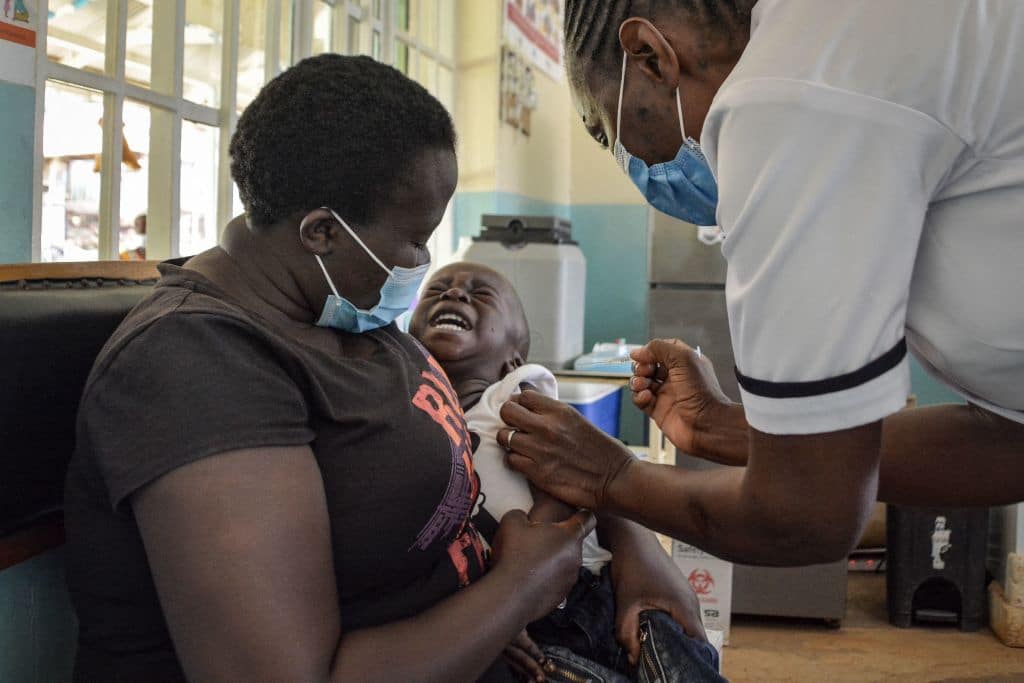TOPLINE
The Centers for Disease Control and Prevention asked U.S. health care practitioners on Thursday to monitor for potential Ebola infections, as an outbreak of the disease in Uganda impacts dozens of people—though no U.S. cases have been confirmed, and infections in Uganda remain much lower than during the infamous 2014-2016 outbreak in West Africa.
KEY FACTS
The CDC issued a health advisory Thursday to “remind clinicians about best practices” about Ebola, and said it was communicating with public health departments and healthcare workers to raise awareness about the outbreak in Uganda, which has killed 10 people since it began last month.
The U.S. Embassy in Uganda also announced Thursday that all passengers flying from Uganda to the U.S. who have been in the east African country 21 days before their arrival will be routed to five airports in the New York City area, Atlanta, Chicago or Washington for enhanced health screenings.
The embassy added that the “risk of Ebola domestically is currently low,” while the CDC noted the Ebola outbreak is limited to five districts in central Uganda.
To date, 44 cases have been confirmed in Uganda, with 10 confirmed deaths and 20 probable deaths from the disease within the past month, according to the CDC, marking the largest Ebola outbreak in the country in the past two decades.
Health care providers should ask patients whom they suspect could have Ebola for a detailed travel history to prevent the spread of infection, the CDC said Thursday.  Forbes Business
Forbes Business
 READ MORE
READ MORE


 Shake Up Happy Hour With A Copycat SourCherry Gin Cocktail
Shake Up Happy Hour With A Copycat SourCherry Gin Cocktail
KEY BACKGROUND
The Ugandan Ministry of Health declared an outbreak of Ebola Virus Disease on September 20, after the Sudan species of the virus began to spread in the central Mubende District of Uganda. The first confirmed case was a 25-year-old man who lived in the district and died the same day he tested positive, with an investigation revealing several other unexplained deaths in the community the month prior. There have been five outbreaks of Ebola caused by the Sudan virus in Uganda since 2000, though the most recent, which took place in 2012, was effectively contained, according to the CDC. The disease—which is spread through contact with infected blood or bodily fluids—was first discovered in 1976 in a village near the Ebola River in Zaire, which is now the Democratic Republic of Congo. Several outbreaks of Ebola virus have occurred over the past several decades across several regions in Africa.
BIG NUMBER
28,610. That’s how many people were infected with Ebola during the world’s largest outbreak of the virus in West Africa—including Guinea, Liberia and Sierra Leone—from 2014 to 2016, according to the CDC. Some 11,308 people died from the outbreak, or about 39% of those infected, while four cases were confirmed in the U.S. in 2014 as well.
TANGENT
In 2014, the World Health Organization detected cases of the Zaire Ebola virus in Guinea, which marked the beginning of the West African Ebola epidemic. Infections spread to several countries, including Liberia, Sierra Leone, Nigeria and Senegal, as well as countries outside of Africa, including the U.S, Italy, the United Kingdom and Spain. The health crisis marked the first time Ebola spread from more rural, isolated areas into densely packed populations in urban areas, according to the CDC. The disease spread rapidly in part due to weak surveillance systems and poor public health infrastructure.
WHAT TO WATCH FOR
A clinical trial of two experimental vaccines to guard against the Sudan Ebola virus could soon be underway, the WHO said last week. Two vaccines protect against the Zaire species of Ebola, but they don’t provide protection against the Sudan species, which is quite different.
FURTHER READING
U.S. Health Officials Urge Vigilance as Ebola Spreads in Uganda (New York Times)
Ebola experimental vaccine trial may begin soon in Uganda (STAT News)
By Madeline Halpert, Forbes Staff
